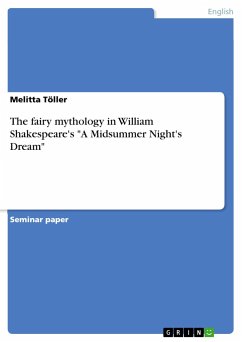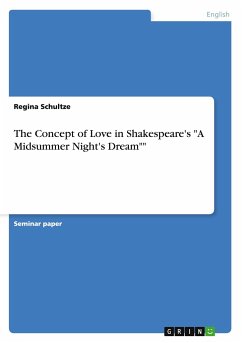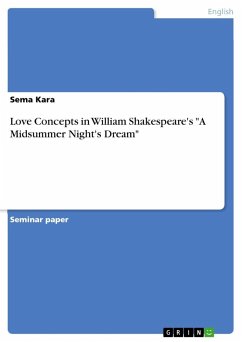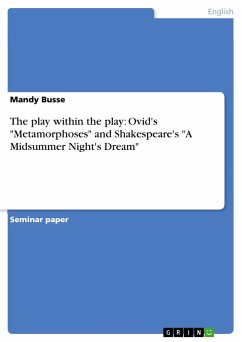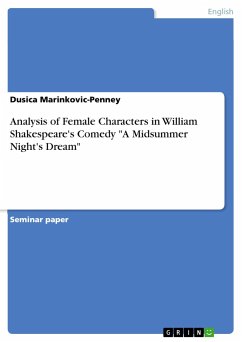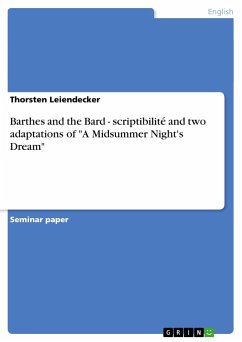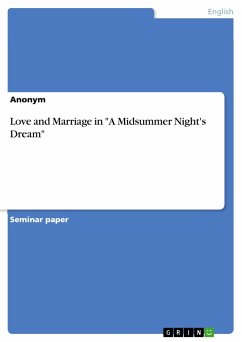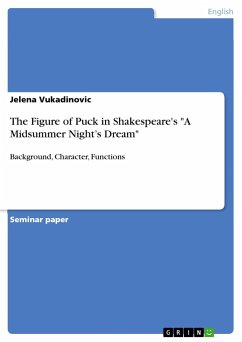Seminar paper from the year 2004 in the subject English Language and Literature Studies - Literature, grade: 2,0, University of Paderborn (Fakultät für Kulturwissenschaften), course: Shakespeare: The Comedies, language: English, abstract: "A Midsummer Night's Dream" is Shakespeare's most enchanting comedy and one of his most popular plays. It is very lyrical and poetic, filled with magical beings from mythological worlds and the power of true love. Shakespeare's age was the great time of fairy poetry in English literature, but no other work has influenced our visions of fairies as much as "A Midsummer Night's Dream". Till today the idea of fairies, as we have them in our mind, is shaped by Shakespeare's delighting comedy. The play can be interpreted as "a fantasia on love" , because love, it's follies, absurdities, conflicts and even dangers draw a red line through the play: from the quarrel between the fairy king and queen, to the heroic love of Theseus for his war-conquered Amazon queen, to the love-chase of Hermia, Helena, Lysander and Demetrius, and to the enchanted experiences of Bot-tom. In nearly all of these love affairs the fairies have their (sometimes helping) hand engaged and they are thus very important agents in the main- and in the sub-plots. In this paper I will first take a survey of the historic belief in fairies in Shakespearian England, and then look at Shakespeare's literary sources for the most important and most famous fairies who appear in this play, namely Oberon, Titania and Puck. Then I will show some parallels between the fairy queen Titania and Queen Elizabeth I, and afterwards I will analyze the quarrel between Oberon, king of fairies, and his wife. Finally I will give a comprehensive overview of the various ways of performing the play, both in theatre and in film.
Hinweis: Dieser Artikel kann nur an eine deutsche Lieferadresse ausgeliefert werden.
Hinweis: Dieser Artikel kann nur an eine deutsche Lieferadresse ausgeliefert werden.

